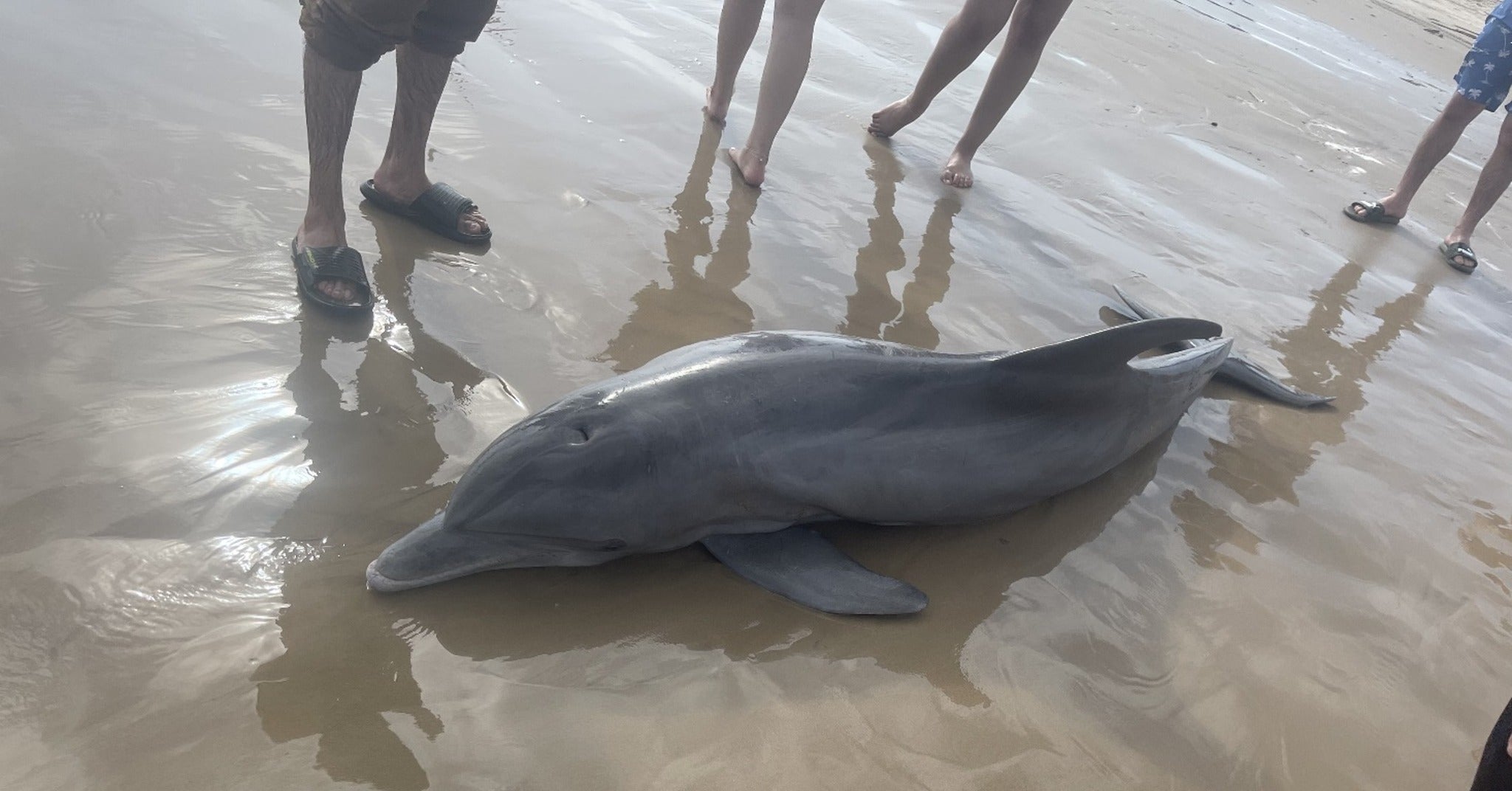A dolphin has died after beachgoers on the Texas Gulf Coast allegedly harassed and tried to swim with and ride it.
According to the Texas Marine Mammal Stranding Network, the dolphin was stranded on the sand at Quintana Beach when a group of people surrounded the animal and pushed it back to sea. The animal was then again stranded on the beach and died before rescuers from Quintana Beach County Park arrived on the scene.
“This was a tragedy,” a Quintana Beach County Park Facebook post read. “Park staff was called to assist in keeping the public away from the dolphin until rescuers could arrive from Galveston. Unfortunately, it was a retrieval, not a rescue. The animal was taken for necropsy to try and determine the cause of the stranding.”
Quintana Beach is a located in large beachfront park in Brazoria County, just south of Houston. It is located between two national wildlife reserves, close to the mouth of Brazos River.
According to the Texas Marine Mammal Stranding Network, if a dolphin or whale is stranded on a beach on the state, people should not push the animal back into the water but rather give the animal space and call for assistance. Failure to do that, like in this case, can have serious consequences.
“This type of harassment causes undue stress to wild dolphins, is dangerous for the people who interact with them,” is “illegal,” and is “punishable by fines and jail time.”
The Marine Mammal Protection Act, passed in 1972, prohibits even the harassment or attempted harassment of marine mammals in the wild. Violation of the act can result in a sizable fine and up to a year of prison time. The National Oceanic and Atmospheric Administration recommends staying at least 150 feet away from marine mammals in the wild.
Subscribe to Independent Premium to bookmark this article
Want to bookmark your favourite articles and stories to read or reference later? Start your Independent Premium subscription today.


Join our commenting forum
Join thought-provoking conversations, follow other Independent readers and see their replies